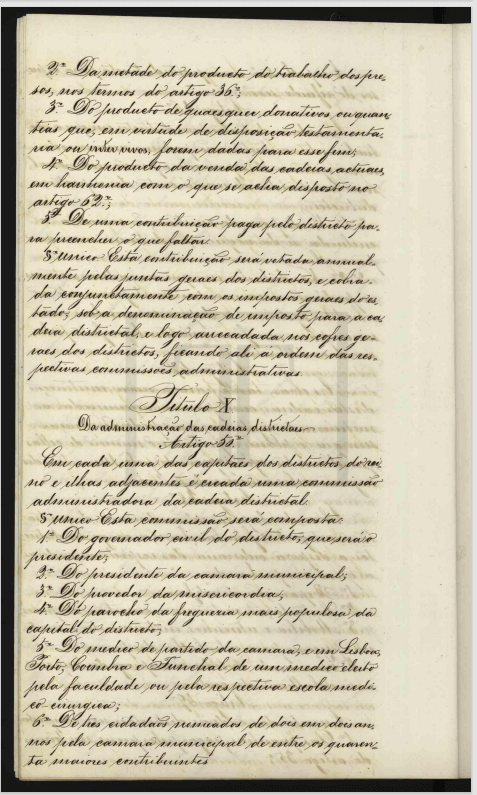This website uses cookies so that we can provide you with the best user experience possible. Cookie information is stored in your browser and performs functions such as recognising you when you return to our website and helping our team to understand which sections of the website you find most interesting and useful.
Charter of Law of Abolition of the Death Penalty

The EHL Site
The site seeks to educate, especially the youth, about the historical process leading to the abolition of the death penalty. This process involved:
• The integration of European humanistic doctrines into laws and legal reforms.
• The formation of abolitionist movements composed of individuals from diverse social backgrounds, including writers, philosophers, legal and criminal experts, and journalists.
• Portuguese and European events and personalities that paved the way for values promoting human dignity, democracy, rule of law, and respect for human rights, now fundamental principles of the European Union.
The abolition of the death penalty is a common principle that all nations strive to achieve. From a historical perspective, this document exemplifies the realization of philanthropic and humanist values born in Enlightenment-era Europe by figures like Cesare de Beccaria, and further championed by subsequent abolitionist movements.
The principles and values mentioned in the Charter of Law of Dom Luís, which includes the 1867 Law, are now included in the Charter of Fundamental Rights of the European Union. This shows the enduring symbolic and moral strength of this historic document in promoting human rights and dignity.
European dimension
The 1867 Law of the Abolition of the Death Penalty, one of the first of its kind in a large national legal system, symbolizes European values such as:
• Its embodiment of 18th and 19th-century European rationalist humanism principles.
• The presence of abolitionist movement principles in the Charter of Fundamental Rights of the European Union (CFREU).
• The Portuguese legal system is unique in its enduring commitment to the abolition of the death penalty, even extending it to overseas territories.
The Charter of Law also influenced other countries. Portugal’s bold reform, despite sharing cultural and historical heritage with other European nations, bolstered abolitionist movements across Europe. The stance of smaller nations championing human rights played a crucial role in:
• Demonstrating the possibility and effectiveness of abolition to larger nations.
• Countering pro-death penalty arguments and accelerating reform in open states.
• Encouraging smaller countries to implement reforms, undermining the moral and political legitimacy of larger nations resisting change.
Notable individuals, including Charles Lucas and Victor Hugo, brought the Portuguese case to European discussions. This was possible through a network established within the abolitionist movement and actions aimed at sharing information on legal developments in various European states.
Charles Lucas, a fervent abolitionist, studied the legislation of countries pursuing abolition and disseminated his findings across Europe to influence politicians. Similarly, Carl Mittermaier maintained close contact with Portuguese legal experts, staying updated on legislative progress in Portugal.
The Charter of Law’s introduction post-1830 marked the resurgence of the abolitionist movement, reinvigorating the arguments against the death penalty and the call for penal reform across Europe. This document, thus, played a substantial role in the history and
The organization
The Charter of Law of the Abolition of the Death Penalty in Portugal was recognised with the European Heritage Label distinticveness on the 15th of April 2015 and it can be found in the National Archives of Torre do Tombo.
The selection of the Law of the Abolition of the Death Penalty of 1867 as an European Heritage Label reinforces our aim to contribute to the promotion of the values of the European Citizenship, in particular Human Rights, and to build an identity based on the values of tolerance and respect for human life, as the result of an historic process in which new concepts of crime, criminals and criminal justice were born, according to the European Convention on Human Rights.
